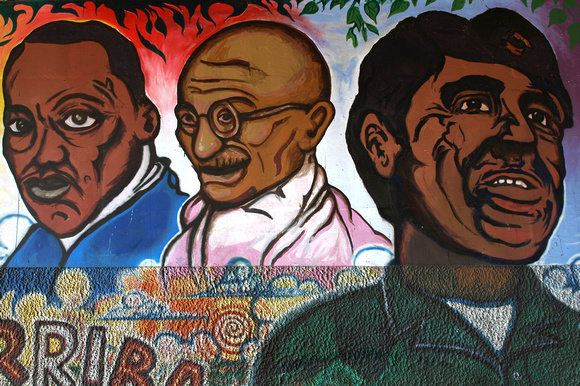 By: Andrew Roberts
By: Andrew Roberts
My father has celebrated Guy Fawkes Day many times. Little known in the United States, on November 5, 1605, Guy Fawkes attempted to blow up the British Parliament in hopes of overthrowing the government and crowning a Catholic monarch. This event, known as the Gunpowder Plot, clearly had both political and religious motives. In hopes to crush any sort of future treason, the British government used November 5th as a day to celebrate Fawkes’ defeat and remind citizens of the consequences for acting against the government. This has been passed down for generations and is why my father celebrates this day. He was born and raised in the Bahamas, which was at the time a British colony. By common tradition, he and his friends would find junk to create a man – who was meant to resemble Guy Fawkes – and light the effigy on fire in addition to fireworks and parties.
The initial goal of the British government was clear – they wanted to use Fawkes as an example to discourage anyone from acting as he did. To many, this day still exists to celebrate that the good of the government conquers evil and dissent. As this tradition progressed, however, some people began to lose sight of why the day existed and even started using Guy Fawkes Day to commemorate and almost celebrate Fawkes as a martyr rather than a traitor. While his attacks might have been largely religiously motivated, the government was largely religiously based at the time; he could not attack one without the other. Fawkes, because of his martyrdom and attempted treason, has become a figurehead for anti-government movements. Although the Gunpowder Plot happened over four-centuries ago, what Fawkes opposed and fought against is still relevant and important to many groups today.
The movie V for Vendetta, directed by James McTeigue, involves a character largely based on Guy Fawkes. The masked character V similarly tries to blow up Parliament in response to the fictional British totalitarian government. The mask that V wears is meant to be look like Fawkes and there are many mentions of the number five –such as his name, V, the Roman numeral for five – referring to November 5th. The relevancy of this movie is that anti-establishment groups have adopted and now wear the V for Vendetta mask, using it to show their sentiments against the government and thus align themselves beside Fawkes.
One of the groups that have adopted the mask is the activist group Anonymous. Known to hack websites that violate its principles, the group works against over-reaching surveillance, infringement of free speech, censorship, and government oppression. Prominent instances of its “hacktivism” include when it hacked the Syrian Ministry of Defense’s website in response to the oppressive Assad regime and its attack on the United States Department of Justice’s website after the closing of the website MegaUpload. Although the group normally works from behind its computers, its members are almost always wearing Guy Fawkes masks when they do make rare public appearances. For example, Anonymous released a video in response to the National Defense Authorization Act in which the speaker wears the mask while informing the public of their cause. Anonymous embodies Fawkes, or better yet, because of its anonymity, Fawkes embodies them. Anonymous is similarly willing to work against the establishment in any instance to achieve its goals.
Additionally, some members of the Occupy group have adopted the mask to represent their movement. Occupy, although not as active as it used to be, protests the inequality that exists within the corporate environment, as well as how many wealthy firms have created a “corporatocracy” in which they have extreme and unfair influence in the government. Most of the movement does not oppose the government as a whole, but instead advocates for the purest form of democracy possible without corporate dominance. The Fawkesian ideology applies to this movement as much as it does Anonymous; its anti-establishment goals work against corruption and incite a sort of revolution similar to what Fawkes wanted, even if more peaceful.
These are just two of the most prominent examples of dissenting groups that accept Fawkes as a martyr rather than a traitor and acknowledge his ideology as timeless. Members of Arab Spring and Greek protests have also worn the mask, showing that Guy Fawkes has become the global figure of anti-establishment groups. Even politicians in Poland bore the mask when the Anti-Counterfeiting Trade Act was being considered, as they believed it would violate citizens’ free speech and privacy rights.
On the eve of what has been called the most important election in a generation, it is critical to take a moment to reflect on today, Guy Fawkes Day, and put it into context. What Guy Fawkes stood and died for is what would today be called “home-grown terrorism,” and yet despite the high level of treason and extremity of his actions, his idea is everlasting, relevant, and even more important today than in 1605. As a character in V for Vendetta says, “We are told to remember the idea, not the man, because a man can fail. He can be caught, he can be killed and forgotten, but 400 years later, an idea can still change the world.”
Is all of this a cry for revolution? Of course not. Just a thought. Just an idea.

